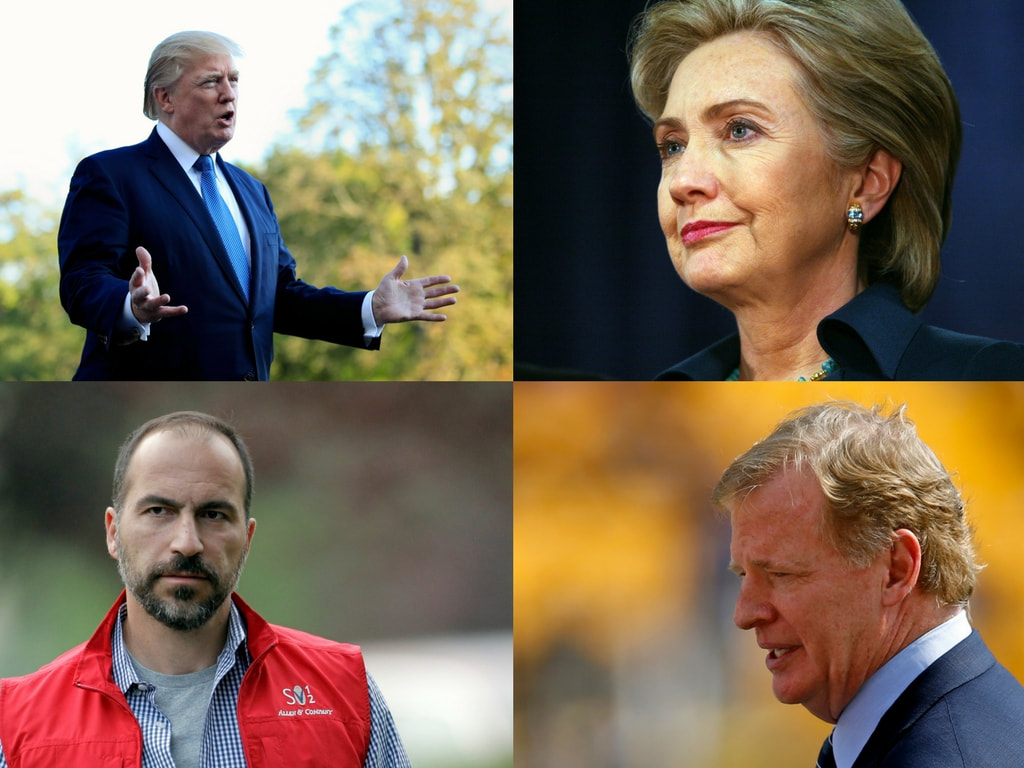|
When we analyzed the media coverage of Trump and the NFL over the weekend, we noticed a number of quotes that had questionable reasoning. When outlets quote leaders and other sources, and those quotes have flawed logic, it can influence how readers interpret the facts. For this analysis, we selected four separate stories—some recent, some older—and analyzed the logic of statements made by leaders and companies ranging from Donald Trump to Hillary Clinton, from Roger Goodell to Uber. (To read background on each news event, see the Raw Data section below). Here they are: 1) Sept. 22: Trump criticized professional athletes who “disrespect” the American flag and national anthem (CNN) “If a player wants the privilege of making millions of dollars in the NFL, or other leagues, he or she should not be allowed to disrespect our Great American Flag (or Country) and should stand for the National Anthem,” President Donald Trump said.
2) Sept. 22: London denies licence application to Uber (The Guardian) Uber said in a statement the decision would “show the world that, far from being open, London is closed to innovative companies”.
It doesn’t follow, does it? 3) Sept. 10: Hillary Clinton gives interview before her book release this month (Fox News) “And then this speech [by Trump], a cry from the white nationalist gut,” Hillary Clinton said.
4) April 16: US launched airstrikes on Syrian government air base (The New York Times) “Years of previous attempts at changing Assad’s behavior have all failed…As a result, the refugee crisis continues to deepen, and the region continues to destabilize, threatening the United States and its allies,” Trump said.
The issue isn’t necessarily that the outlets chose to include these quotes. There’s value to knowing what people said, no matter how misleading the quote may be, and especially if the statements are central to the news event. But what responsibility might the media have when including quotes like those above? At times, outlets can contribute to or obscure faulty logic by adding flawed reasoning or misleading language of their own. Although we did not discuss it here, subjective language (spin) and one-sided reporting (slant) can support or mask the faulty logic of a quote. Furthermore, providing readers with facts from a diversity of viewpoints can also provide counter-evidence to some erroneous claims, or at least highlight weaknesses in a particular line of reasoning. Often, outlets don’t include such information. News consumers also have a responsibility to build and apply critical thinking. We hope that the above analysis can help detect faulty reasoning. Written by Shane Mottishaw and Julia Berry López Edited by Shane Mottishaw and Jens Erik Gould Visit the original story with ratings on Knife Media’s website Follow us on Twitter @theknifemedia Comments are closed.
|
Jens Erik GouldJens is a political, business and entertainment writer and editor who has reported from a dozen countries for media outlets including The New York Times, National Public Radio and Bloomberg News Archives
February 2018
Categories
All
|

 RSS Feed
RSS Feed